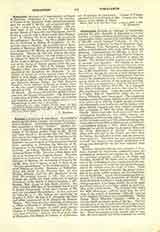

Comana, a titular see of Asia Minor. According to ancient geographers, Comana was situated in Cappadocia (Cataonia). Eustathius (Comment. ad Dionys., 694) surnames it Chryse, “Golden”. Another surname in epigraphy is Hieropolis, owing to a famous temple of the Syrian goddess Enyo or Ma. Strabo and Caesar visited it; the former (XI, 521; XII, 535, 537) enters into long details about its position on the Sarus (Seihoun), the temple and its hieroduli. St. Basiliscus was put to death at Comana and was buried there; according to Palladius, the historian of St. Chrysostom, he was bishop of the city, but this is very doubtful. Its bishop, Elpidius, was present at the Council of Nicaea, in 325. Leontius, a Semi-Arian, held the see in the time of the Emperor Jovian. Heraclius appeared at Chalcedon in 451: Comana was then a suffragan of Melitene, the metropolis of Armenia Secunda; since then it figures as such in most of the “Notitiae episcopatuum” to the twelfth century. Two other bishops are known: Hormizes, or Hormisdas, about 458 . (letter to the Emperor Leo; see also Photius, Biblioth., Cod. 51) and Theodorus at the Fifth Ecumenical Council, in 553. The ruins of Comana are visible ten miles northwest of Guksun (Cocussus), in the vilayet of Adana (Lequien, I, 447; Ramsay, Hist. Geogr. of Asia Minor, passim). Another Comana, suffragan of Neocaesarea, was situated in Pontus Polemiacus; it had also a temple of Ma, and was surnamed Hierocaesarea. It was captured by Sulla, 83 B.C. Six bishops are mentioned by Lequien (I, 517); the first is St. Alexander the Charcoal-Seller, consecrated by St. Gregory the Wonderworker. This town is today Gomenek, or Gomanak, a village southwest of Neocaesarea (Niksar), in the vilayet of Sivas. Lequien (I, 1009) gives another Comana in Pamphylia Prima, suffragan of Side; the true name is Conana. Zoticus, who lived at the time of Montanus, was Bishop of Conana, or of Comama, not of Comana in Cappadocia. Cosmas of Conana appeared at Constantinople in 680. Conana is today Gunen, in the vilayet of Adana.

